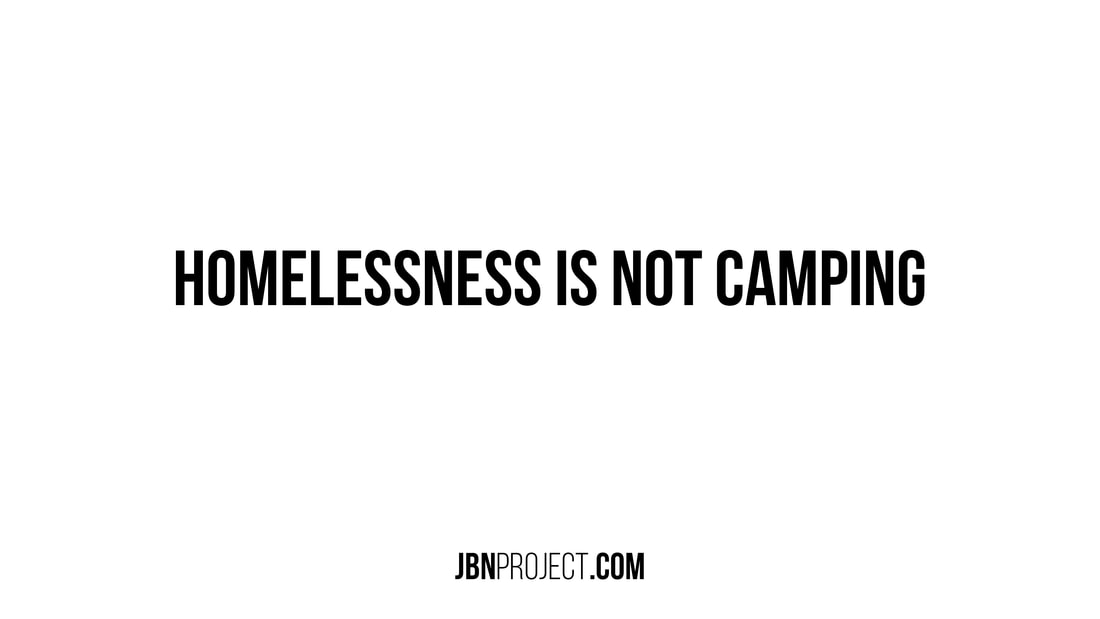|
You don't need to 'pretend' cancer to know it sucks.
So why do we ‘pretend’ homelessness by camping outside or making television shows that put wealthy individuals on the street for a set period of time so that they ‘experience’ homelessness? Homelessness is not simply sleeping on the street, it is the result of complex emotional, socio-economic circumstances. People experience it in a range of different ways, for a range of different reasons, with a range of different attitudes and mental/physical health effects. It isn't camping. It isn’t even scary camping. Part of the stress response that is so pervasive among homeless and at-risk communities is the fact that they do not know when their situation will improve. They aren’t just getting to the end of the night, or the end of the experiment. This experience is their lived experience, every day. If we are indeed, attempting to improve societies understanding of disadvantage, we need to improve the community’s capacity to understand people. If you need to sleep outside at night to realise it is cold outside and concrete is hard to sleep on, then perhaps there are other developmental steps that could be taken to increase your capacity to understand different lived experiences first. People who are homeless, and sleeping rough aren’t the same as people who choose to spend a night on the street. Their experience is not the same. If you wish to do a thought experiment on homelessness with yourself and others, don’t ask yourself Why is this person homeless? Start by understanding that, for this person, being homeless and sleeping rough is their best option right now. Start with the understanding that if there was a better option for them, they would take it. Then ask yourself, what would I have had to go through, for this terrifying, uncomfortable, unsafe option to be my best option in life? Perhaps your thoughts would look like this; I would have to be without familial support, for some reason. I might be avoiding group accommodation because I had an overwhelmingly negative and traumatic experience there, and I would rather risk it on the street than stay in the rooming house that I was offered. I may have had a rough childhood, been developmentally impaired, missed opportunities for education and consider myself unemployable. I may be so over the uncertainty of temporary measures to alleviate my homelessness, rather than solve it, that I prefer the certainty of sleeping rough to avoid the heartache. I may have suffered terribly in my life, and made choices around substance abuse that have spiralled beyond my control and I have nowhere to go to help. Through the lens of your experience, how would you then look to assist the person in need? Would you be keen to invest in the development, over time, of this person? Would you demand that they simply take ‘the room that is offered?’ Would you consider your offer of a sandwich adequate, or would you prefer to lobby government to provide long-term, multi-stage interventions to assist these individuals in great need? You don’t need to pretend to sleep on the street to understand homelessness. You need to take the time to understand that people, the overwhelming majority of people, are living in what they consider to be their best options. What would you have had to experience, to believe that these circumstances are the best you can do? If you are looking to assist with improving equality of opportunity for at-risk and disadvantaged communities everywhere, do not hesitate to get in touch. Keep on learning, keep encouraging understanding and remember, Just Be Nice. |
Just Be NiceA collection of articles relevant to pursuing the effective execution of altruism in the search for equality of opportunity. Archives
February 2020
Topics
All
|

 RSS Feed
RSS Feed